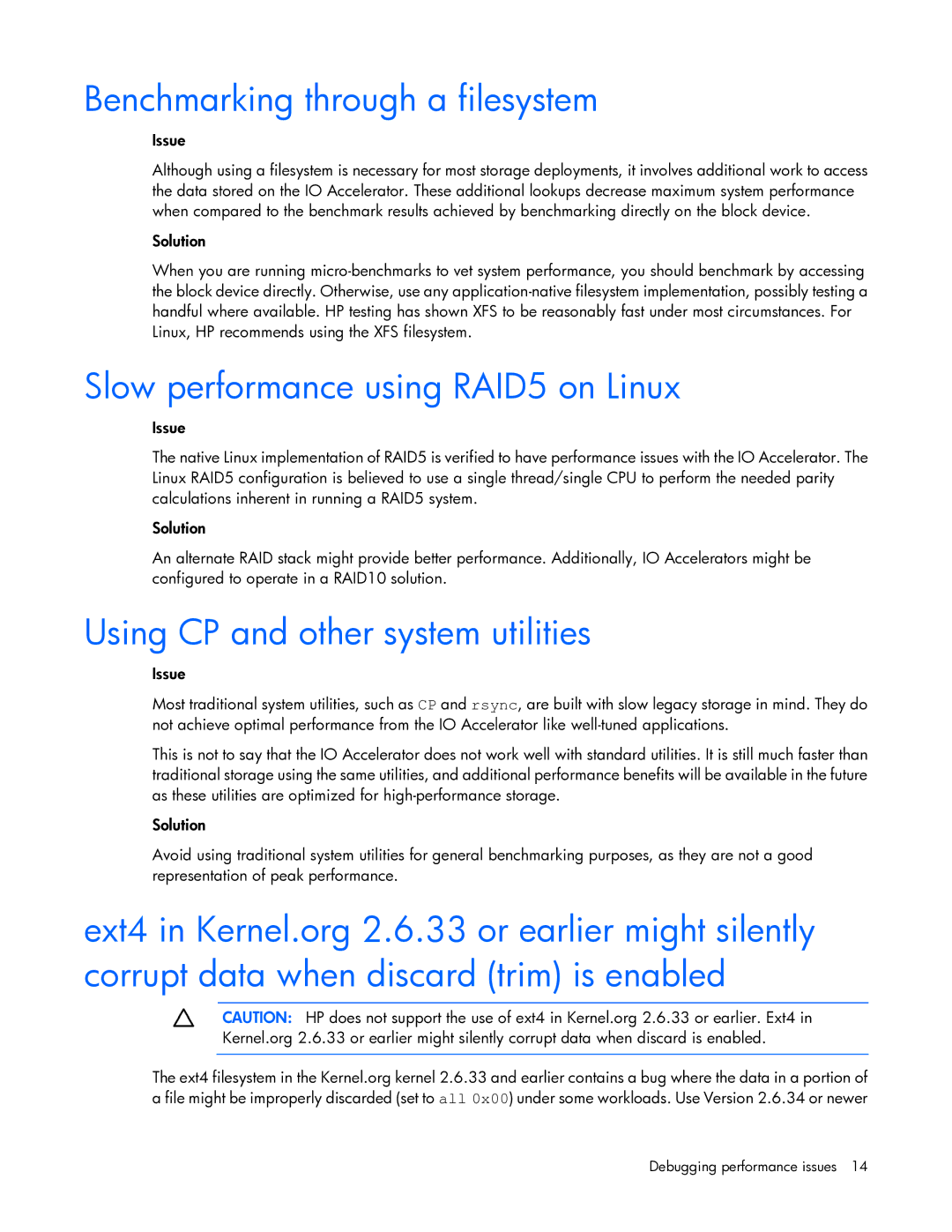Benchmarking through a filesystem
Issue
Although using a filesystem is necessary for most storage deployments, it involves additional work to access the data stored on the IO Accelerator. These additional lookups decrease maximum system performance when compared to the benchmark results achieved by benchmarking directly on the block device.
Solution
When you are running
Slow performance using RAID5 on Linux
Issue
The native Linux implementation of RAID5 is verified to have performance issues with the IO Accelerator. The Linux RAID5 configuration is believed to use a single thread/single CPU to perform the needed parity calculations inherent in running a RAID5 system.
Solution
An alternate RAID stack might provide better performance. Additionally, IO Accelerators might be configured to operate in a RAID10 solution.
Using CP and other system utilities
Issue
Most traditional system utilities, such as CP and rsync, are built with slow legacy storage in mind. They do not achieve optimal performance from the IO Accelerator like
This is not to say that the IO Accelerator does not work well with standard utilities. It is still much faster than traditional storage using the same utilities, and additional performance benefits will be available in the future as these utilities are optimized for
Solution
Avoid using traditional system utilities for general benchmarking purposes, as they are not a good representation of peak performance.
ext4 in Kernel.org 2.6.33 or earlier might silently corrupt data when discard (trim) is enabled
CAUTION: HP does not support the use of ext4 in Kernel.org 2.6.33 or earlier. Ext4 in Kernel.org 2.6.33 or earlier might silently corrupt data when discard is enabled.
The ext4 filesystem in the Kernel.org kernel 2.6.33 and earlier contains a bug where the data in a portion of a file might be improperly discarded (set to all 0x00) under some workloads. Use Version 2.6.34 or newer
Debugging performance issues 14
